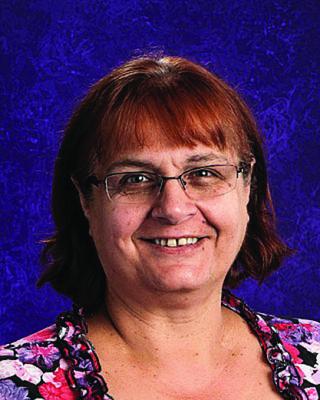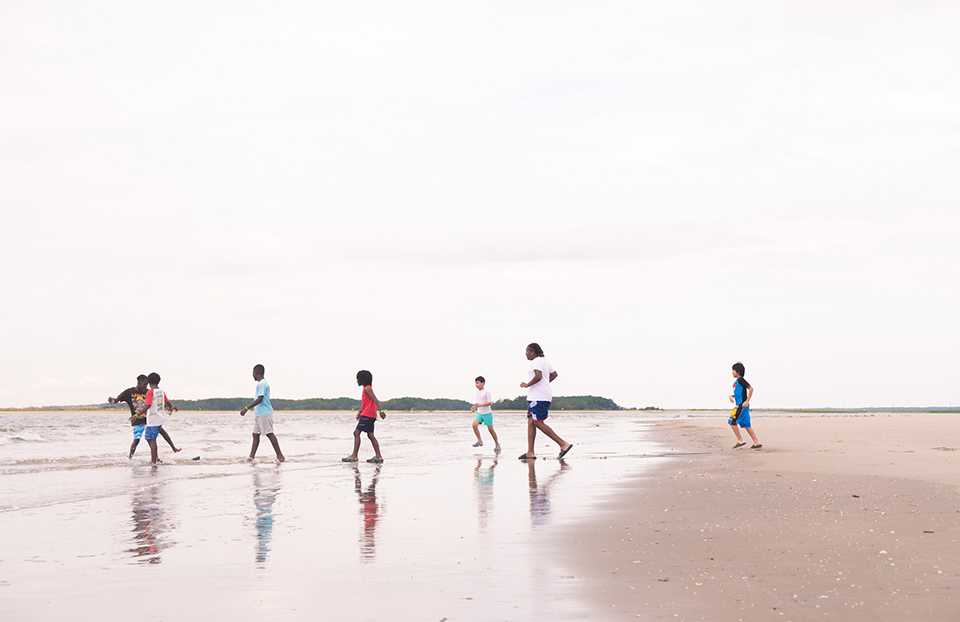Society Fellow Becky Nutt Merges Science with Native American Culture
Becky Nutt, a 2009 Society Fellow, is a life and environmental science teacher at Oneida Nation High School in Oneida, Wisconsin. This culture-based school serves Native American students, primarily of Oneida heritage. Below she describes her first three years participating in the Society for Science & the Public Fellowship program.

I teach in the Oneida Nation School System (ONSS), a Bureau of Indian Education program with funding from both the federal government and the Oneida Tribe of Indians of WI. Our mission is to integrate the Oneida language and culture throughout our curriculum as we prepare our students to meet today’s challenges while drawing on the values and concepts handed down through the oral tradition. When I began my tenure at ONSS one of the first things I was told was, “we do Science Fair here!” In fact, ONSS has had an elementary school science fair for more than twenty-five years, affiliated with the American Indian Science and Engineering Society (AISES).
Despite this history, participation at the high school level was hit or miss. As the only science teacher at the high school, I was spread in many directions. Participation in the fair was voluntary and most projects lacked sophistication. Our local fair was a qualifier to the AISES fair usually held in New Mexico, but students rarely qualified to attend.
Three things came together to move the science program at the high school forward. First, we were awarded a grant to look at the science behind Oneida stories. This led to developing a series of experiments centered around the companion planting of the Three Sisters; corn, beans, and squash. Next, prior to the 2007 Intel International Science and Engineering Fair (Intel ISEF) held in New Mexico, I joined a group of educators from Native American schools at a workshop conducted by Russ Fisher-Ives at the Intel ISEF 2006 held in Indianapolis. This taught me that any interest can drive research and helped evolve my thinking from a focus on “science fair” participation to “science research.” Finally, the opportunity for me to spend two summers in Patrick Masson’s research lab on the campus of the University of WI- Madison brought it all together. For the first time I was experiencing what science research really looked like. I wanted to bring that experience to my students.
The Society Fellowship has supported my program in two major ways; access to training and expertise, and funding for supplies, fees, and big ticket items that the district did not have the resources to provide. One of my first purchases was a thermacycler and centrifuge to expand opportunities in biotechnology, including looking at our community white corn for GMO contamination.
The overarching goals of my program have been simple: to increase participation in science research through exposure and enrichment activities and to provide the support needed by students pursuing science research. Developing mentorships has been key to successful projects, and this is an area I continue to work in and where training provided by the Society has been invaluable. Finding mentors has been a challenge but each year this becomes easier, as I continue to reach out to the academic and business community.
In prior years, science research presentations by my students were “one and done” at our local fair. Students are now presenting at regional and state competitions that are qualifiers for Intel ISEF. We also participate in the Junior Science Engineering and Humanities symposium and the Indian Education Renewable Energy Challenges, where we won the high school division two years in a row. Students now have a better handle on what higher level competitions involve and are motivated to work toward higher goals. Student participation in science research has been a source of continued pride in our community and I am pleased that our participation in Society programming supports that outcome.


